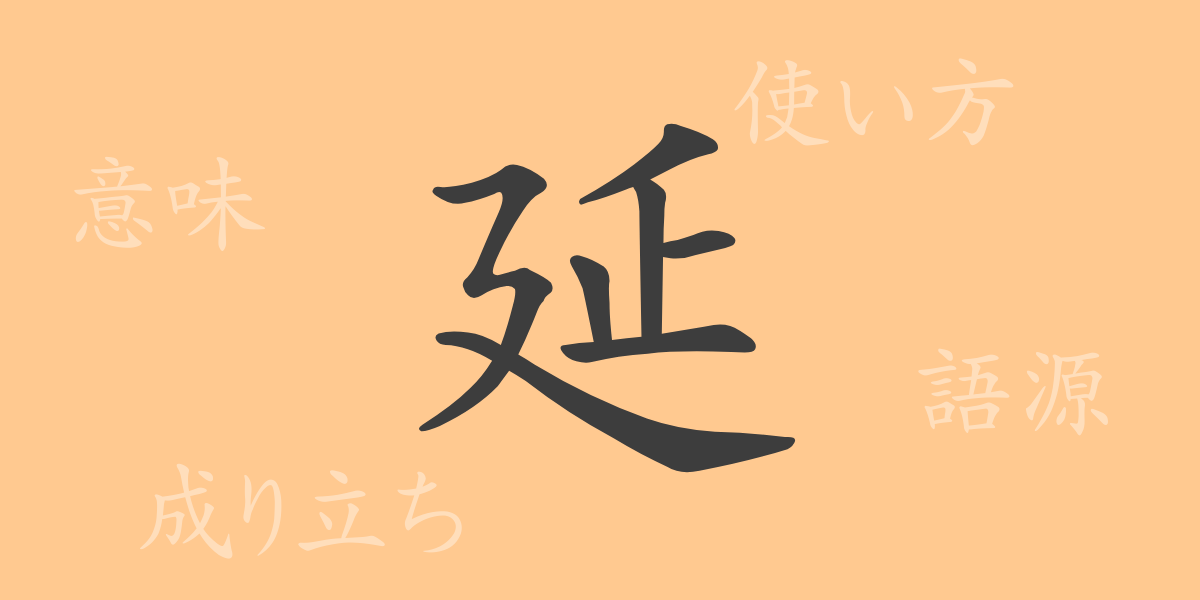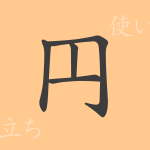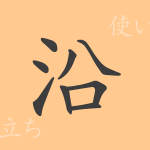“
The common kanji “”延”” (En) is deeply rooted in Japanese culture and carries a profound meaning. Let’s explore the rich history and uses of this single character and see how it can be utilized in daily life. By understanding the thoughts and stories behind each kanji, we can feel the power of words more deeply.
The Origin of 延 (En)
“”延”” is a kanji that has been used since ancient times, and its form is a combination of “”彳”” (Gyouninben) and “”廴”” (Ennyou). “”彳”” represents a walking person, while “”廴”” indicates the appearance of stretching or extending. When these two elements are combined, the meaning of “”a road extending as a person advances their steps”” is born, and from there, various meanings of extension and prolongation have derived.
The Meaning and Usage of 延 (En)
“”延”” has meanings such as “”to continue for a long time,”” “”to stretch,”” and “”to postpone.”” This kanji is used not only for abstract concepts like extending time or space but also for referring to concrete physical actions. For example, “”延長戦”” (Enchosen) refers to a match or game that is extended beyond the regulated time when a winner cannot be determined within the allotted time in sports or other competitions.
Reading, Stroke Count, and Radical of 延 (En)
“”延”” is a common kanji in Japan, and its reading and form have been standardized.
- Reading: The on’yomi reading is “”えん”” (En), and the kun’yomi readings include “”のびる”” (Nobiru), “”のべる”” (Noberu), “”のべ”” (Nobe), and “”のび”” (Nobi).
- Stroke Count: “”延”” is an 8-stroke kanji.
- Radical: Its radical is “”廴”” (Ennyou).
Compound Words, Idioms, and Proverbs Using 延 (En) and Their Meanings
There are numerous compound words, idioms, and proverbs containing “”延,”” each with its own unique nuance. For example, “”延期”” (Enki) means to postpone something that was scheduled to a later date, while “”延長”” (Enchou) means to extend time or distance. Additionally, “”延べ板”” (Nobeita) refers to a thinly stretched metal sheet, and “”延命長寿”” (Enmeichouju) is a phrase expressing the wish for a long life.
Conclusion on 延 (En)
The common kanji “”延”” has a wide range of meanings and uses that are hard to imagine from its simple shape. This kanji, which is frequently used in daily life, plays an important role in symbolizing time and space. By understanding the history and culture behind words, we can more deeply appreciate the profound meaning carried by each and every kanji character.
“

























